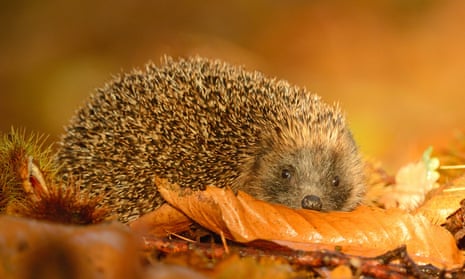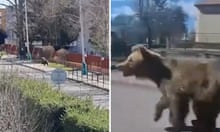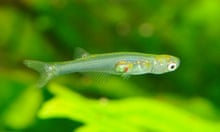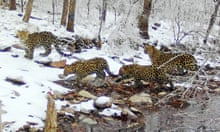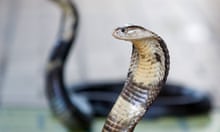Hedgehogs have been harbouring a type of the MRSA superbug since long before the use of antibiotics in humans and livestock, research suggests.
Scientists have found evidence of the superbug arising in nature well before the use of the drugs, which have traditionally been blamed for its emergence.
The spiky creatures carry a fungus and a bacteria on their skin, both of which are locked in a battle for survival. Antibiotics are secreted by the fungus to kill the bacteria but, in response, the bacteria has evolved antibiotic resistance – becoming Methicillin-resistant Staphylococcus aureus, or MRSA.
Up to 60% of hedgehogs carry a type of MRSA called mecC-MRSA, which causes one in 200 of all MRSA infections in humans, according to the study.
The researchers suggested natural biological processes, not antibiotic use, caused the emergence of this superbug among hedgehogs about 200 years ago.
The study was an international collaboration that included the University of Cambridge, the Wellcome Sanger Institute, Denmark’s Serum Statens Institut and the Royal Botanic Gardens, Kew, which has traced the genetic history of the bacteria.
They were investigating the surprising discovery, from hedgehog surveys in Denmark and Sweden, and also found high levels of MRSA in swabs taken from hedgehogs across their range in Europe and New Zealand.
Dr Ewan Harrison, a researcher at the Wellcome Sanger Institute and University of Cambridge and a senior author of the study, said: “Using sequencing technology we have traced the genes that give mecC-MRSA its antibiotic resistance all the way back to their first appearance, and found they were around in the 19th century.”
He added: “Our study suggests that it wasn’t the use of penicillin that drove the initial emergence of MRSA, it was a natural biological process.
“We think MRSA evolved in a battle for survival on the skin of hedgehogs, and subsequently spread to livestock and humans through direct contact.”
Given that almost all the antibiotics used today arose in nature, the researchers say it is likely resistance to them already exists in nature too.
Overuse of any antibiotic in humans or livestock will favour resistant strains of the bug, so it is only a matter of time before the antibiotic starts to lose its effectiveness.
Prof Mark Holmes, a researcher in the University of Cambridge’s department of veterinary medicine and a senior author of the report, said: “This study is a stark warning that when we use antibiotics, we have to use them with care.
“There’s a very big wildlife reservoir where antibiotic-resistant bacteria can survive and, from there, it’s a short step for them to be picked up by livestock and, then, to infect humans.”
Previous work led by Holmes first identified mecC-MRSA in human and dairy cow populations. At that time, it was assumed the strain had arisen in the cows because of the large amount of antibiotics they are routinely given.
However, the researchers said the findings are not a reason to fear hedgehogs, as humans rarely get infections with mecC-MRSA, even though it has been present in hedgehogs for more than 200 years.
Prof Holmes said: “Wild animals, livestock and humans are all interconnected – we all share one ecosystem. It isn’t possible to understand the evolution of antibiotic resistance unless you look at the whole system.”
This research, published in Nature, was funded by the Medical Research Council.
